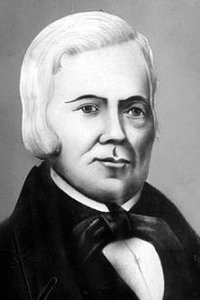Introduction

Born: October 24, 1784, Danville, Kentucky.
Died: March 28, 1842, Aurora, Indiana.
Buried: Originally in the Veraestau Cemetery, Aurora, Indiana, later moved to the family plot in the River View Cemetery.

Born: October 24, 1784, Danville, Kentucky.
Died: March 28, 1842, Aurora, Indiana.
Buried: Originally in the Veraestau Cemetery, Aurora, Indiana, later moved to the family plot in the River View Cemetery.
When Holman was 16 years old, he joined the Clear Creek Baptist church.
For his life-work he directed his attention to the bar in Newcastle. For a while, he read law in the Lexington office of Henry Clay. On account of his opposition to slavery, he crossed the Ohio river in 1810, and made his home in Indiana, on a bluff to which he gave the name Veraestau, and where he lived the rest of his life.
It appears he came into a considerable estate soon after he turned 21. Five years later, he brought his slaves to Indiana for the sole purpose of freeing them.
He was named Prosecutor of Dearborn County, Indiana, in 1811. In 1814, he was elected a member of the territorial legislature, and near the close of the same year was made presiding judge for his district.
Under the state government, in 1816, he was appointed a judge of the supreme court, a position which he filled 14 years. In 1831, he was a candidate for United States senator, losing to John Tipton by a single vote. Four years later, he was appointed United States district judge for Indiana, and an office he held until his death.
Holman took a deep interest in missions, Sunday schools, Bible and temperance work. In 1834, he was ordained, and on his circuits he frequently addressed large audiences upon topics connected with these enterprises.
For many years he was a vice-president of the American Sunday-school Union. He was also president of the Western Baptist Publication and Sunday-school Society.
For five years he was president of the Indiana Baptist Convention. He was also, from its organization, a member of the Indiana Baptist Education Society.